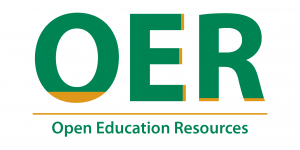
What are OER?
Open Educational Resources (OER) are free teaching, learning, and research materials that are openly licensed, allowing users to retain, reuse, revise, remix, and redistribute them. OER can include textbooks, quizzes, videos, interactive learning modules, and more.
In recognition of Open Education Week (the first week in March), this guide aims to raise awareness of an important issue affecting students: textbook affordability and the availability of open-access alternatives.
Why use OER?
OER helps lower financial barriers for students while improving learning outcomes. Research continues to highlight its impact:
- Textbook costs continue to harm student success: A 2022 survey of Florida students found that 53.5% of students did not purchase a required textbook due to cost and 32.4% reported earning a poor grade as a result (Florida Virtual Campus, 2022).
- OER adoption is increasing but still has room to grow: 41% of faculty reported using OER materials in at least one of their courses during the 2023-24 academic year. (Bay View Analytics, 2024).
Beyond affordability, OER allows faculty to customize course materials, ensuring relevance, adaptability, and timely updates rather than relying on costly, static textbooks.
For help finding OER materials for your courses, contact your subject librarian or explore campus OER resources.